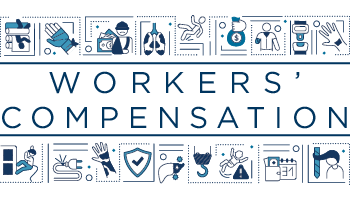Blogs
Our attorneys are thought leaders who contribute to the body of knowledge in their legal disciplines through insights, guest articles, speaking engagements, and other appearances. Check out news from HBS, media coverage of the firm, and columns we’ve written for respected publications.
Construction
The HBS Construction Blog offers information and insight about key issues, court decisions, and legislation on all related topics including insurance coverage, liability for failures, and both damage and injury.
Data Privacy & Cybersecurity
The Data Privacy and Cybersecurity Blog explores legal developments, trends and business strategies around data protection, retention, privacy, reporting obligations, risk management, how to respond to hacking or security breaches, what to disclose and when, and other agenda-setting topics. The insight features tips to help clients identify data protection concerns, assure that their businesses are in compliance and develop proactive plans that reduce the risk of data security breaches. We also weigh in on breaking news such as cyberattacks, ransomware, phishing, viruses and other matters.
Employment Updates
Our Employment Updates Blog keeps readers up to date on the latest employment law cases, legal developments, and trends impacting business operations, labor relations, compensation, benefits, and more.
Health Care Highlights
Our Health Care Highlights Blog covers the quagmire of risks as well as the endless opportunities for health care or life sciences organizations. Our attorneys explore what’s at stake involving case law, business trends, regulatory and legislative changes, and other factors that impact these areas. Our analyses provide advice on navigating the complexities of this ever-changing field. Each post includes practical tips for identifying, quantifying, or mitigating potential risks along with tactics for protecting the interests of relevant organizations in the pursuit of the aim to lower costs, improve quality, and expand access to the field, all while avoiding running afoul of legal and regulatory requirements.
Immigration
HBS works with employers and individuals to help them secure temporary, permanent, and family-based visas and remain compliant with laws and requirements. From general topics including naturalization and citizenship to more specific updates concerning I-9 verification and H-1B visas, our attorneys will help you stay up-to-date on trending topics.
Workers’ Compensation
Our Workers’ Compensation blog follows news and analyzes lawsuits, verdicts, rulings, appeals and other legal developments that affect insurance carriers, self-insured employers / servicing agents, and uninsured employers. We explore how changing lifestyles and technology play larger roles in workers’ comp cases, such as the use of physical fitness data from wearable devices and whether injuries sustained at company-sponsored softball games are compensable. We also share practical tips for implementing proactive response systems to minimize the initiation of claims.







